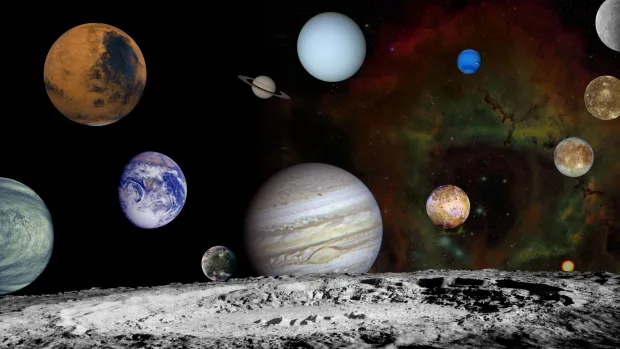Our solar system is a fairly bustling area. From comets to asteroids, planets to moons, there are millions of moving objects. And we find more and more things that inhabit the Solar System every year—typically little asteroids or fast comets.
By 1846, astronomers had located all eight of the major planets. That doesn’t stop us from seeking further though. Pluto is now categorized as a dwarf planet, a smaller, farther-off body discovered in the last 100 years.


We have cause to think that something else may be hiding in the Solar System’s periphery with the discovery of some of these dwarf planets.
Does a ninth planet exist?
Astronomers search for a ninth planet, sometimes known as “Planet Nine” or “Planet X,” for a good cause, putting in many hundreds of hours. That is so because, in the absence of it, the Solar System as we know it would not truly make sense.
Everything in the Solar System revolves around the Sun. Though some move quickly and others slowly, they all follow gravity. You and myself included, anything with mass has gravity. An object has more gravity the heavier it is.
The enormous gravitation of a planet affects the motion of objects surrounding it. We term that as its “gravitational pull”. All that is on Earth is held there by gravity.
The planets orbit our Sun primarily because it has the strongest gravitational pull of any object in the Solar System.
We obtain our most significant hint about a potential Planet Nine from our knowledge of gravitational attraction.
Adverse actions
We discover somewhat unexpected orbits of extremely distant objects, such dwarf planets beyond Pluto. They are clustered, orbit on very big elliptical (oval-shaped) orbits, and are inclined relative to the rest of the Solar System.
Astronomers determine that a planet at least 10 times the mass of Earth would have been needed to produce this when they use a computer model to simulate the gravitational forces required for these objects to move in this way.
It’s quite thrilling stuff! Where is this planet located, is the next inquiry.
Confirming the accuracy of these models and forecasts is currently our challenge. Finding Planet Nine is the sole means of doing that, and it is undoubtedly easier said than done.
Read More: Trump Vows to Terminate Biden-Gensler Crypto Campaign
We hunt on
For several years now, scientists worldwide have been searching for outward signs of Planet Nine.
The computer calculations indicate that Planet Nine is at least 20 times further from the Sun than Neptune. As the Moon shines at night from reflected sunlight, we seek for sunlight it may reflect to find it.
But given how far from the Sun Planet Nine is, we anticipate it to be extremely dim and hard to see with even the most advanced telescopes on Earth. It is also not something we can just hunt for year-round.
We have a few evenings when the conditions have to be ideal. We must specifically wait for a night when there is no moon and the place from which we are watching faces the appropriate sky direction.
Still, don’t give up hope just now. New sky surveys will start and new telescopes will be constructed in the next ten years. They could just present us with the chance to establish or refute the existence of Planet Nine.
FAQs
Scientists suspect there might be, but it hasn’t been directly observed yet. This hypothetical planet is nicknamed “Planet Nine” or “Planet X”.
The unusual orbits of some objects in the Kuiper Belt, a region beyond Neptune, suggest they are being influenced by the gravity of a large unseen mass.
Estimates suggest Planet Nine could be Neptune-sized, with about 10 times the mass of Earth. Its orbit is likely far beyond Neptune’s, taking tens of thousands of years to circle the Sun.




